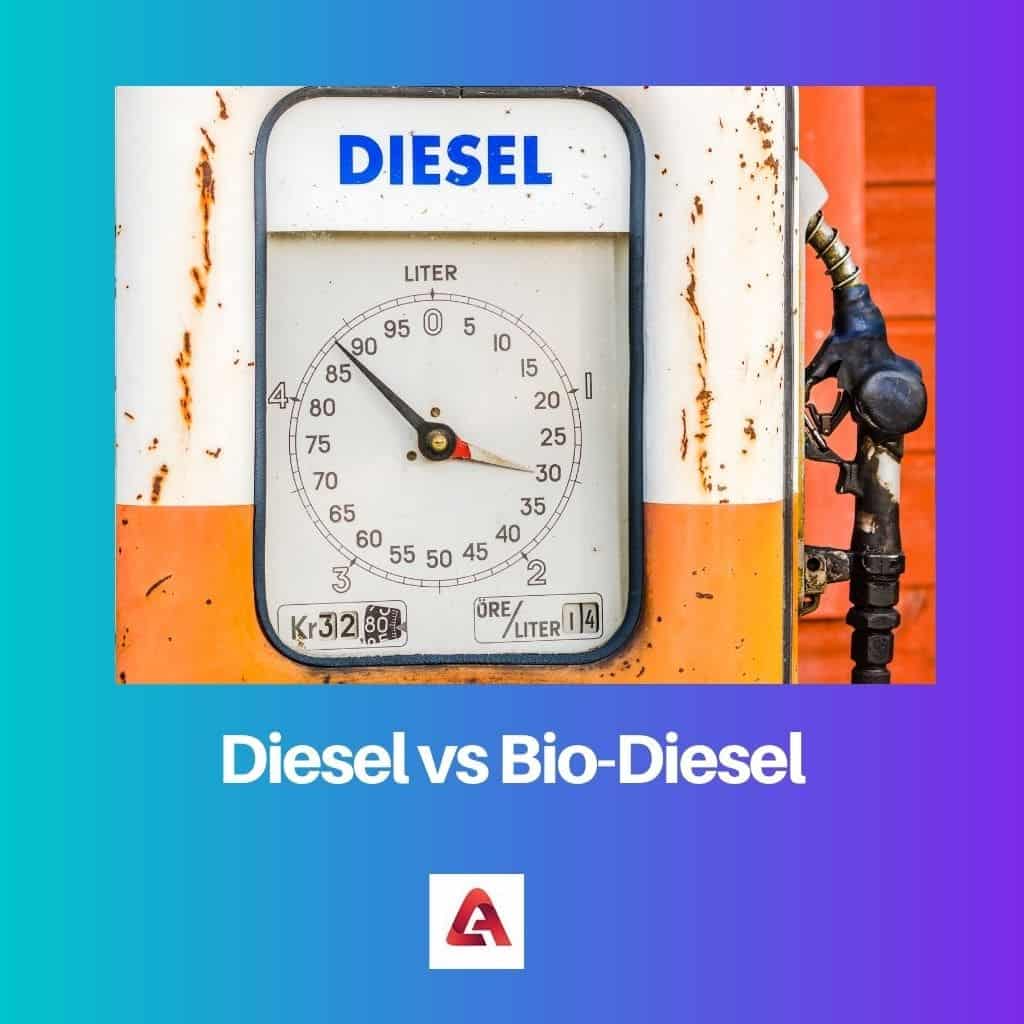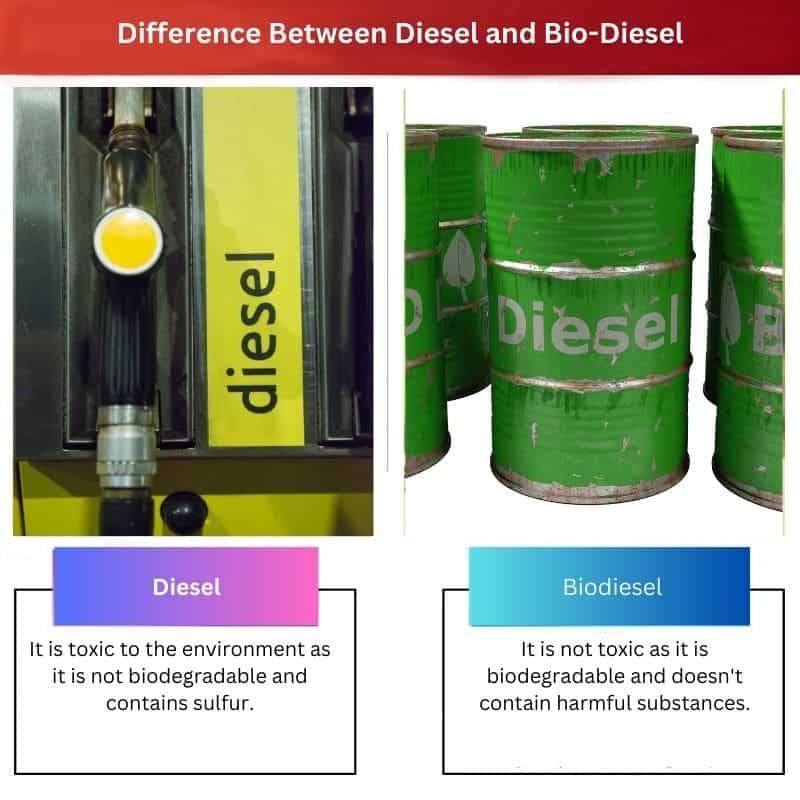Key Takeaways
- Diesel is a petroleum-based fuel derived from crude oil, while biodiesel is a renewable fuel made from vegetable oils, animal fats, or recycled cooking grease.
- Biodiesel produces fewer greenhouse gas emissions and is biodegradable, making it more environmentally friendly than diesel fuel.
- Biodiesel can be used in most diesel engines with little or no modification, and it can be blended with diesel fuel to create a more sustainable fuel option.

What is Diesel?
Diesel is a liquid fuel obtained from the fractions of crude oil. The less volatile bits of crude oil are utilized to manufacture Diesel used in engines. Diesel fuel emits more energy on consumption. It doesn’t ignite by sparking. Instead, it is ignited by the heat of compressed air in the cylinder. Diesel engines have a chamber wherein fuel is injected into hot compressed air. This hot compressed air ignites the Diesel.
Several grades of Diesel are manufactured, such as light-middle, heavy, and middle distillates. The light-middle and middle distillates are utilized for high-speed engines with frequency variations in speed. In contrast, heavy distillates are used for low and medium-speed engines. The Lowest grade of low-speed engines are the least volatile and thus leave the highest amount of carbon residues and sulfur content.
Traditional Diesel comprises about 5000 ppm(parts per million) of sulfur by weight. Many newer versions of this conventional Diesel have been introduced to reduce its sulfur. A recent study says that several governments have embedded the law to utilize Diesel of sulfur no more than ten ppm.

What is Biodiesel?
Biodiesel is a diesel fuel derived from plants and animals and has long-chain fatty acids as its constituents. The National Biodiesel Board defines biodiesel as a mono-alkyl ester. In industries, they are made using reacting lipids such as soya bean oil, vegetable oils, and animal fat with alcohol to produce a methyl and propyl ester through transesterification.
This biodiesel, made using Vegetable and waste oils, is compatible with existing diesel engines and distribution infrastructure. However, some researchers conclude that biodiesel must be blended with petrodiesel to run machines. The colour of the biodiesel is clear from golden to brown depending on the production method, and it also decides the fuel quality.
The system known as the B factor differentiates between the different grades of diesel. 100% biodiesel is referred to as B100, while 20% biodiesel is referred to as B20, and it has 80% petrodiesel. The 20% biodiesel and lower can be used in engines without any modifications. But B100 requires little modification in engines to be used as a fuel.

Difference Between Diesel and Bio-Diesel
- A low amount of diesel emits large amounts of energy. On the other hand, a large amount of biodiesel is required to emit the same amount of energy.
- Diesel is obtained from crude oil and thus poses a scarcity issue on natural reserves. At the same time, biodiesel is made from plants and thus poses an issue on food security.
- Diesel contains harmful substances such as sulfur and aromatic hydrocarbons. At the same time, biodiesel doesn’t contain any harmful chemicals.
- Diesel can even cause lung cancer due to its harmful constituents emission. In contrast, biodiesel has no harm to human health because it has zero harmful emissions.
- UsingDiesell can cause harm to the engine of your vehicle. In contrast, biodiesel has little or no harm to your engine.
Comparison Between Diesel and Bio-Diesel
| Parameter of Comparison | Diesel | Bio-Diesel |
|---|---|---|
| Effect on environment | It is a significant source of air pollution | It is environment-friendly |
| Affordability | It is quite Costly | It is an affordable option |
| Energy | It has high energy | It has low energy |
| Source | It is produced from crude oil or petroleum | It is produced from vegetable oil and algae |
| Toxicity | It is toxic to the environment as it is not biodegradable and contains sulfur. | It is not toxic as it is biodegradable and doesn’t contain harmful substances. |

- https://www.sciencedirect.com/science/article/pii/S1364032107001438
- https://www.sciencedirect.com/science/article/pii/S0016236111000688
